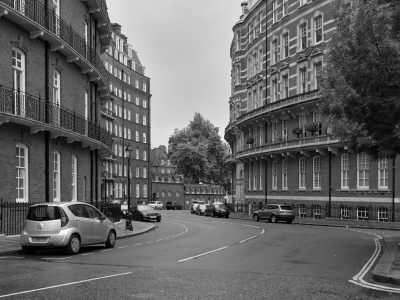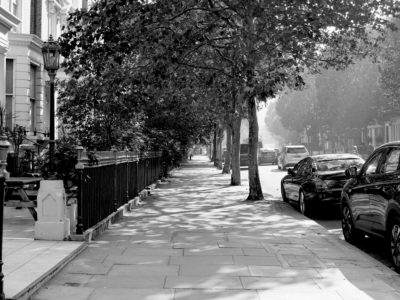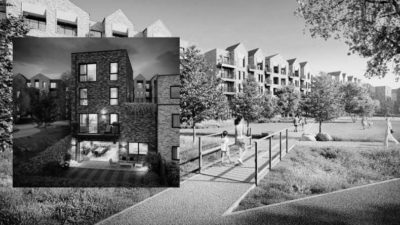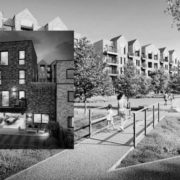The homebuying process has come to be seen as one full of hidden costs, some of which people believe are unnecessary, designed only to line the pockets of the property professionals you meet along the way.
Surveys, however, are a worthy expenditure and one that we would always encourage homebuyers to consider money well spent. Better to spend £1,000 now than discover a property issue later down the line and end up spending £10,000 to fix it.
A study by the Royal Institute of Chartered Surveyors (RICS) revealed that 80 percent of homeowners bought a property without having a survey. This resulted in an average bill of £5,750 for unexpected repair work.
What is a property survey?
A property survey is a detailed assessment of a property conducted by a qualified surveyor.
As a homebuyer, surveys are designed to give you as much information as possible about the home you are buying, including any issues or defects.
The surveys will then offer possible solutions for the problems, alongside an estimated cost for the required work.
For the most part, surveys take place during the conveyancing portion of the homebuying process.
Do I actually need these surveys?
When you’ve already committed to a large spend for your house or flat, further expenses can feel difficult and unnecessary.
Property surveys are optional. You can go ahead and buy a home without them, but this could be a costly mistake. Surveys exist to help you avoid any unexpected or unwanted surprises that could require great expense to fix or could severely damage your enjoyment of living in the home.
So, while surveys do come at a price, they’re more than worth the cost because they help you make sure that the price you’re paying for the home is fair and reasonable.
Surveys are particularly important if you’re buying an old property, a property that hasn’t been on the market for a long time, or a property that has a thatched roof, timber frames, or is listed.
If major problems are uncovered, you may be able to use the information in the survey to negotiate with the seller. The most common type of property issues are as follows: –
- Asbestos
- Structural Movement
- Damp
- Japanese Knotweed
- Electrical Issues
- Faulty Drainpipes
- Roof Issues
- Woodworm and Beetle Infestation
- Insulation
- Flat Roofing
If your survey finds that you’ll need to carry out repairs costing £5,000 you could ask for a reduction on the property price to reflect this, or ask the seller to carry out the necessary repairs before you exchange contracts.
The three basic types of survey
Homebuyer Reports
This is a detailed survey and visual inspection of the home. It includes insights into the overall condition of the property from top to bottom and will highlight any clear and obvious problems.
Building Survey
This is a more comprehensive survey than the Homebuyer Report. It contains everything the Homebuyer Report does but then takes a deeper dive into the true condition of the property. This is the best survey to commission if you’re buying an old or unusual home.
Mortgage Survey
If you’re using a mortgage to buy the property, your mortgage provider might arrange for their own survey to be conducted.
This is not a true survey, rather a brief overview of the property and how much it is worth.
The lender wants to know that, should you default on the loan, the property is valuable enough to cover the money you owe them. Despite this survey being requested by the mortgage provider, there is still a good chance that you will have to pay for it.
A comprehensive guide to all surveys
RICS Home Survey Level 1 – Cost: £300-£900 – Takes around 1 hour to complete
This is the most basic and cheapest survey, perfect for those who are buying a conventional property in decent condition and constructed from common materials.
It will give a very simple overview of the property’s condition and highlight any glaring issues while suggesting how vital it is that each issue is addressed.
As with all surveys, the time and cost will vary depending on the size and type of the property.
RICS Home Survey Level 2 – Cost: £400-£1,000 – Takes around 3 hours to complete
This is the survey that most homebuyers choose. It’s a more detailed version of the above, containing everything from a Level 1 survey but also considering the roof and cellar.
The surveyor will also make recommendations for any further investigation if it’s required and provide advice on how much repairs should be expected to cost
RICS Home Survey Level 3 – Cost: £630 to £1,500+ – Takes up to one full day to complete
This is a full structural survey and the most thorough survey that RICS offers. This is a good choice if you’re buying an old property, 50+ years old, or if the home has an unusual design or is constructed using unusual methods and materials. It is the most expensive of the three RICS Home Surveys.
RPSA Home Condition Survey – Cost: £400-£900
This is the same as a RICS Home Survey Level 2 but is conducted by the Residential Property Surveyors Association (RPSA) instead of RICS.
Both bodies are fully qualified and accredited. It will also include information like broadband speed, damp assessment, and boundary issues.
RPSA Building Survey – Cost: £630-£1,500+
This is the RSPA equivalent of the RICS Level 3.

























Comments